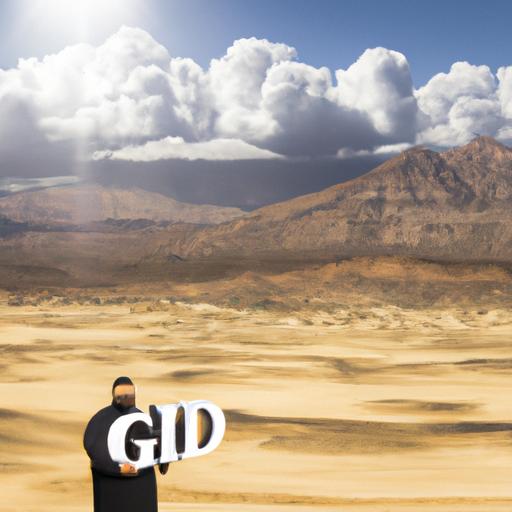DJ Khaled: Unveiling the Controversial Expression
DJ Khaled is renowned for embodying success, positivity, and gratitude. As an American-Palestinian producer, DJ, and songwriter, he has greatly influenced the music industry for more than a decade, delivering chart-topping hits and motivational anthems. Nonetheless, DJ Khaled recently stirred up controversy with his statement “god did,” which has triggered a mixed bag of reactions from fans, critics, and religious groups.
Unpacking DJ Khaled’s Philosophy

Background and Career
DJ Khaled, born in 1975 to Palestinian immigrant parents in New Orleans, Louisiana, spent his formative years in a diverse neighborhood that exposed him to various cultures and music genres. This diverse upbringing significantly influenced his artistic style. Beginning his career as a radio host, DJ Khaled later transitioned into music production and creation, ultimately achieving mainstream success in the early 2010s with hits like “I’m On One” and “All I Do Is Win.” He also gained recognition as a social media celebrity, known for his motivational posts and catchphrases.
Personal Beliefs
DJ Khaled’s personal beliefs are firmly rooted in his faith and cultural identity. Identifying as a Muslim, he often incorporates Islamic teachings and phrases into his music and speeches. Moreover, he places great value on his family and friends, attributing his success to their support. DJ Khaled’s philosophy centers around gratitude, positivity, and spirituality, which he considers the keys to achieving greatness.
Influence on Music and Public Image
DJ Khaled’s philosophy finds its expression in his music and public image. His songs are characterized by uplifting lyrics, infectious hooks, and collaborations with artists from various backgrounds and genres, such as Justin Bieber, Rihanna, and Drake. Through his music, DJ Khaled promotes positivity, self-confidence, and the pursuit of dreams. His public image is further shaped by his social media presence, where he shares glimpses of his daily routines, motivational speeches, and family moments. DJ Khaled perceives himself as a role model, inspiring his fans to be the best versions of themselves.
Decoding the Controversial “God Did” Statement
DJ Khaled’s statement, “god did,” has ignited debates and discussions on social media. Supporters commend his humility and faith, while critics argue that he overlooks his own talent and hard work. To better comprehend the controversy, it is essential to examine the context in which the statement was made and how it was employed in DJ Khaled’s recent social media posts.
In a series of Instagram and Twitter posts, DJ Khaled expressed his gratitude for the success of his latest album, “Khaled Khaled,” and the blessings he has received in life. By employing the phrase “god did,” he acknowledges the involvement of a higher power in his accomplishments and seeks to inspire his fans to embrace faith and positivity.
However, the statement elicited mixed reactions from fans, critics, and religious groups. Some interpreted it as a dismissal of hard work and talent, while others viewed it as a reflection of DJ Khaled’s religious beliefs. Moreover, the controversy raised questions about the intersection of religion and hip-hop culture and its impact on the portrayal and reception of artists like DJ Khaled.
The diverse interpretations of the statement reflect the contrasting cultural and social values held by different communities. Some fans welcomed the departure from typical hip-hop bravado and materialism, perceiving it as a refreshing change. Others viewed it as an attempt to claim moral superiority. Critics pointed out that the statement disregards the systemic barriers and inequalities often encountered along the path to success, reinforcing the notion of an idealized meritocracy. Religious groups exhibited mixed reactions, with some applauding DJ Khaled’s faith and others questioning the appropriateness of invoking the divine in a secular context.
DJ Khaled’s Relationship with Religion
DJ Khaled’s Personal Connection with Religion
Religion has profoundly influenced DJ Khaled’s music and persona. Born into a Muslim family and raised in a Muslim household, he learned the importance of spirituality, family, and gratitude. As he grew older, DJ Khaled explored other religions and philosophies, incorporating their teachings into his life. Religion serves as a constant source of inspiration and guidance in both his personal and professional endeavors. He frequently emphasizes the significance of faith, prayer, and positivity in attaining success and conquering challenges. Despite his fame and wealth, DJ Khaled credits his faith for keeping him grounded and humble.
Connections between DJ Khaled’s Music, Lyrics, and Spirituality
DJ Khaled’s music is heavily influenced by his spirituality and religious beliefs. His lyrics often blend verses from the Quran, Bible, and other sacred texts with motivational messages and personal anecdotes. Collaborating with artists from diverse backgrounds and genres, such as Justin Bieber, Rihanna, and Drake, DJ Khaled aims to create music that transcends cultural and religious boundaries. Beyond entertainment, his songs address social issues like poverty, violence, and discrimination, urging listeners to make a positive impact on the world. DJ Khaled perceives music as a healing and unifying force, bringing people together through shared experiences and emotions.
The Role of Religion in Hip-Hop Culture
Religion plays a multifaceted role in hip-hop culture. Artists express their faith and spirituality in various ways, including incorporating religious themes and references into their music or using their platform to critique organized religion and advocate secularism. Consequently, religion has sparked both controversy and criticism within hip-hop culture. Certain religious groups condemn the genre for its explicit lyrics, violence, and materialistic tendencies. Conversely, hip-hop has also served as a platform for social and political activism, allowing artists to raise awareness and drive change.
DJ Khaled’s “god did” statement encapsulates the diversity of religious beliefs and practices present in hip-hop culture. It exemplifies how personal and artistic expression intersects with religious and cultural convictions. In the following section, we will delve into the impact of DJ Khaled’s statement on his career, reputation, and fanbase, examining how it mirrors the values shared by distinct communities.
The Impact of DJ Khaled’s “God Did” Statement
DJ Khaled’s statement, “god did,” has not only ignited debates but has also left a lasting impact on his career, reputation, and fanbase. While some fans admire his humility and faith, others criticize him for disregarding his talent and hard work. Furthermore, the controversy raises questions about the role of religion in hip-hop culture and its influence on the portrayal and reception of artists such as DJ Khaled.
The statement’s precise influence on DJ Khaled’s career remains uncertain. However, it unquestionably affected his reputation and public image. Critics have accused him of hypocrisy, asserting that he promotes materialism and self-promotion while claiming to be a messenger of God. Supporters counter these claims by highlighting DJ Khaled’s philanthropic work and the positive messages conveyed in his music. Ultimately, the statement has exposed the division between fans and critics, showcasing the diverse opinions and values prevalent in society.
In the era of social media and cancel culture, making controversial statements carries significant consequences for public figures like DJ Khaled. The mixed reactions to the statement underscore the potential risks involved in expressing personal beliefs, particularly when they touch on sensitive topics such as religion. Cancel culture, a prevalent phenomenon involving boycotting or shaming individuals for their actions or statements, poses challenges for public figures attempting to navigate their public image and reputation.
Nevertheless, public figures like DJ Khaled can utilize their platform to express their beliefs while maintaining a commitment to diversity and inclusivity. By promoting messages of positivity, hope, and gratitude, and acknowledging the role of hard work and talent in their achievements, artists like DJ Khaled can inspire their fans and set a positive example for society. Additionally, actively engaging in meaningful conversations about religion, culture, and society can foster greater tolerance and understanding of diverse perspectives and beliefs.
In conclusion, DJ Khaled’s “god did” statement has left a lasting impact on his career, reputation, and fanbase. It has also prompted reflections on the role of religion in hip-hop culture and its influence on the portrayal and reception of artists. Nevertheless, public figures like DJ Khaled can employ their platform to promote positive messages, engage in meaningful conversations, and advocate for diversity and inclusivity.
Wrapping Up
To summarize, DJ Khaled’s statement, “god did,” has sparked online debates and generated discussions about the interplay of religion and spirituality within hip-hop culture. While supporters commend his humility and faith, critics argue that he overlooks his talent and hard work.
However, the controversy surrounding the statement reveals more about DJ Khaled’s philosophy and persona than his actual beliefs. DJ Khaled perceives himself as a messenger of positivity and hope, inspiring his fans to pursue their dreams and overcome obstacles. He attributes his success to a combination of hard work, talent, and faith, and encourages his fans to do the same.
The “god did” statement represents merely one facet of DJ Khaled’s complex personality and career. Over the past decade, he has emerged as a highly influential figure in the music industry, collaborating with some of the biggest names in hip-hop and producing chart-topping hits. His music frequently incorporates religious themes and references, reflecting his profound faith in God and gratitude for life’s blessings.
As we explore DJ Khaled’s statement and philosophy, we must also consider the cultural and social context in which they reside. Religion and spirituality have always held significant roles within hip-hop culture, reflecting the experiences and values of diverse communities. The “god did” statement serves to remind us of the power of faith and gratitude and how they can inspire individuals to achieve their goals and make a positive impact on the world.
Ultimately, the “god did” statement is not solely about DJ Khaled’s personal beliefs. It is a call for us to reconsider how we perceive success, talent, and spirituality in our own lives. It urges us to reflect on our values, aspirations, and motivations, finding inspiration in the daily blessings we often take for granted.

